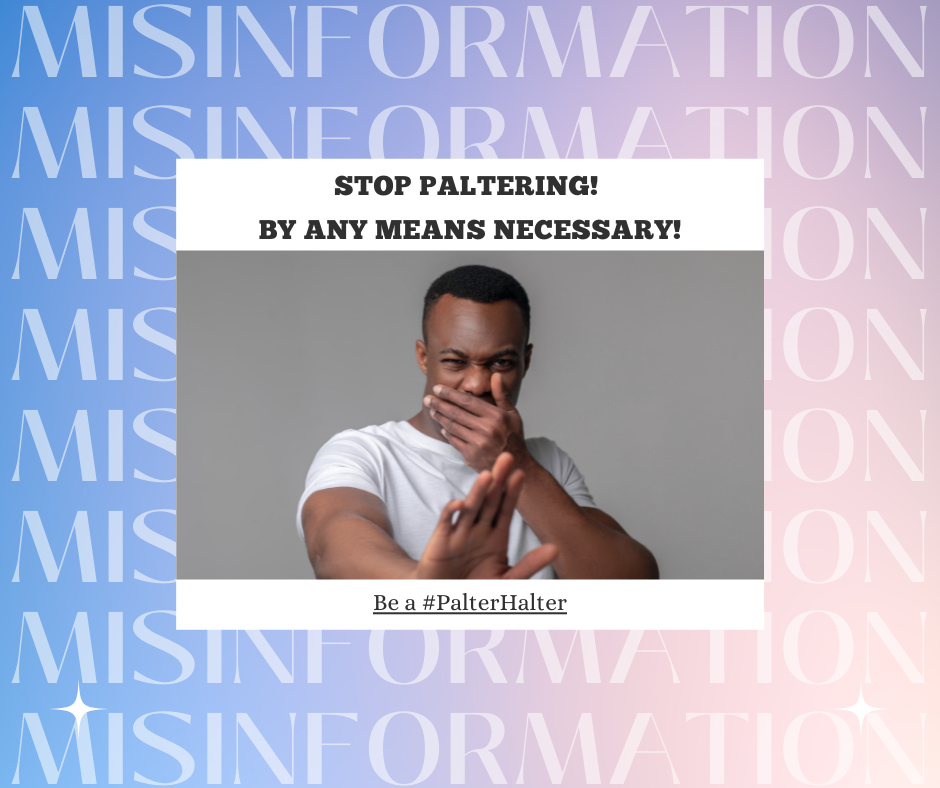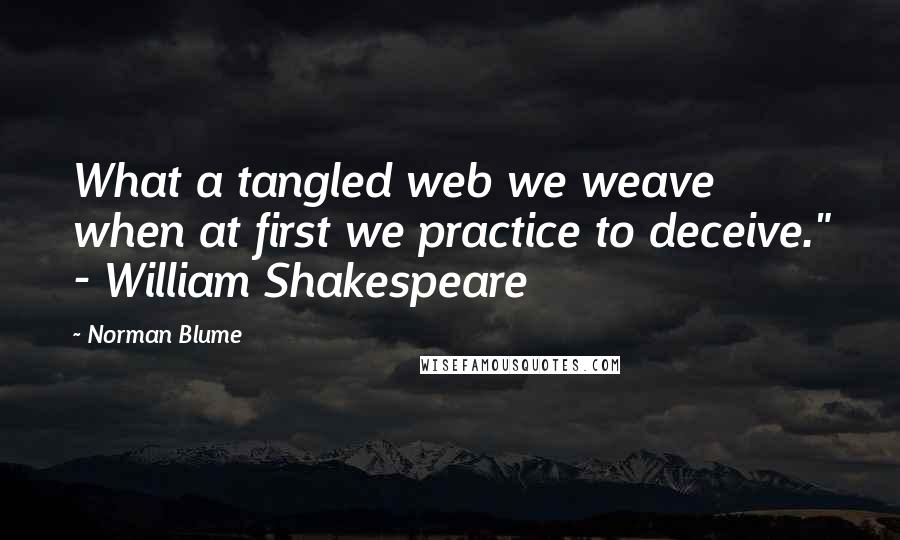
What an appropriate Shakespearean quote to start this post on a little known form of misinformation. I found this graphic on the web at Wise Famous Quotes, in its poorly punctuated form, on a page featuring images by German photographer Norman Blume. It is undoubtedly a famous saying, a wise adage for the ages however, it’s not a quote from Shakespeare. It appears in the poem Marmion, written in 1808 by Sir Walter Scott. The Wikipedia entry for the poem even mentions the frequently misattributed maxim.
One of the most quoted excerpts from Scottish poetry[19] is derived from Canto 6, stanza 17 (although it is often erroneously attributed to Shakespeare):[20][15] “Oh, what a tangled web we weave,/ When first we practise to deceive!”
Wikipedia Entry for Marmion (poem)
If you are somewhat confused, that was my intention. Yes, I called it an “appropriate Shakespearean quote”, but I was referring to its form, language, and tone being evocative of Shakespeare. Did you assume something else? Do feel as if I misled you?
I didn’t lie. (technically)
If I had written a different opening sentence: “This quote by William Shakespeare seems an appropriate way to begin this post.” then that presents a very different scenario. That statement would be a lie if I know that the Bard hadn’t written it, or an error if I simply didn’t check for authorship and relied on erroneous “common knowledge” and the accuracy of an “image quote” meme.
Instead I was paltering, using true information to lead you to a false conclusion.
What is Paltering?
This explainer video from Psychology Unlocked gives a broad overview of Paltering.
Some may be wondering, why I’ve clambered up onto my digital soapbox to decry this obscure term?
I blame lateral reading.
I was reading the article The psychological drivers of misinformation belief and its resistance to correction and I came across the word paltering, the authors calling it one of the “subtler forms” of misinformation.
It was subtle all right.
I had never heard or read that word before, and had no idea how to use it in a sentence. That cut me deep. I pride myself on being a pithy wordsmith. So I started reading laterally to find out what paltering is and became obsessed with the concept.
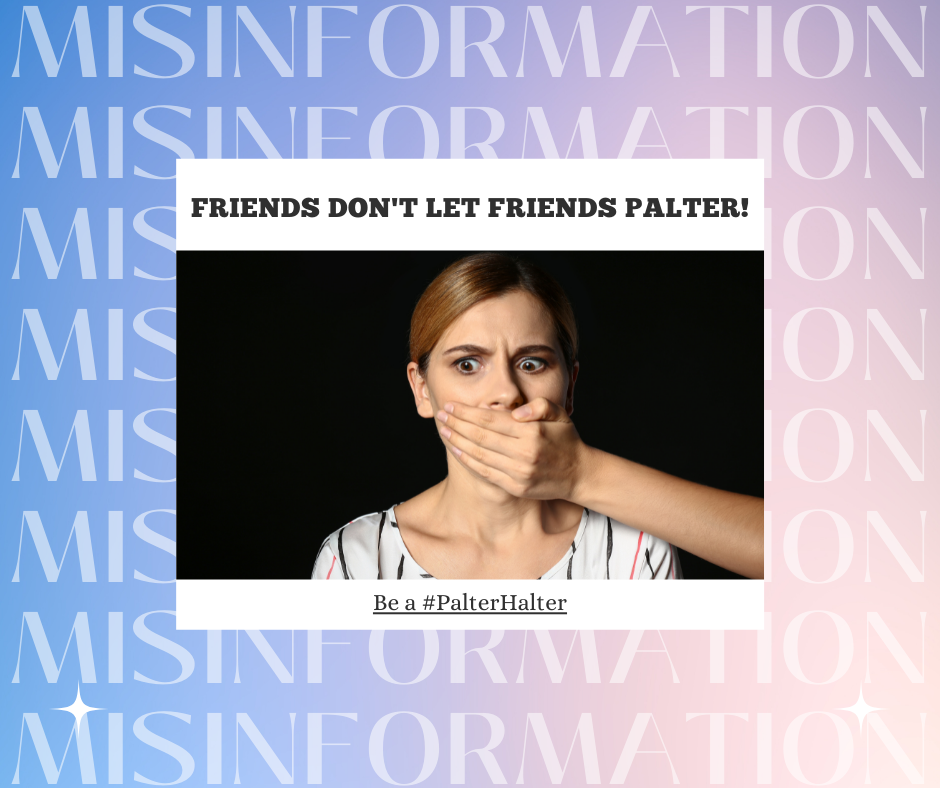
I also found out why I hadn’t heard of paltering before. It only began its rise to prominence after a Harvard Business School study in 2016. Though the researchers there were focused on paltering in negotiations, their findings reached across society. Matthew Hudson put the research into layman’s terms in his Boston Globe article, ‘Paltering,’ a new way to not tell the truth where he takes on misleading talking points from “Fox and Friends” and underhanded tactics for selling a used car.
Within weeks, paltering had made it across the pond as the BBC ran an article with the mischievous headline, The devious art of lying by telling the truth. The article highlighted a key aspect of this form of self-serving and self-deluding deception. Palterers wants to be seen as and think of themselves as honest and ethical.
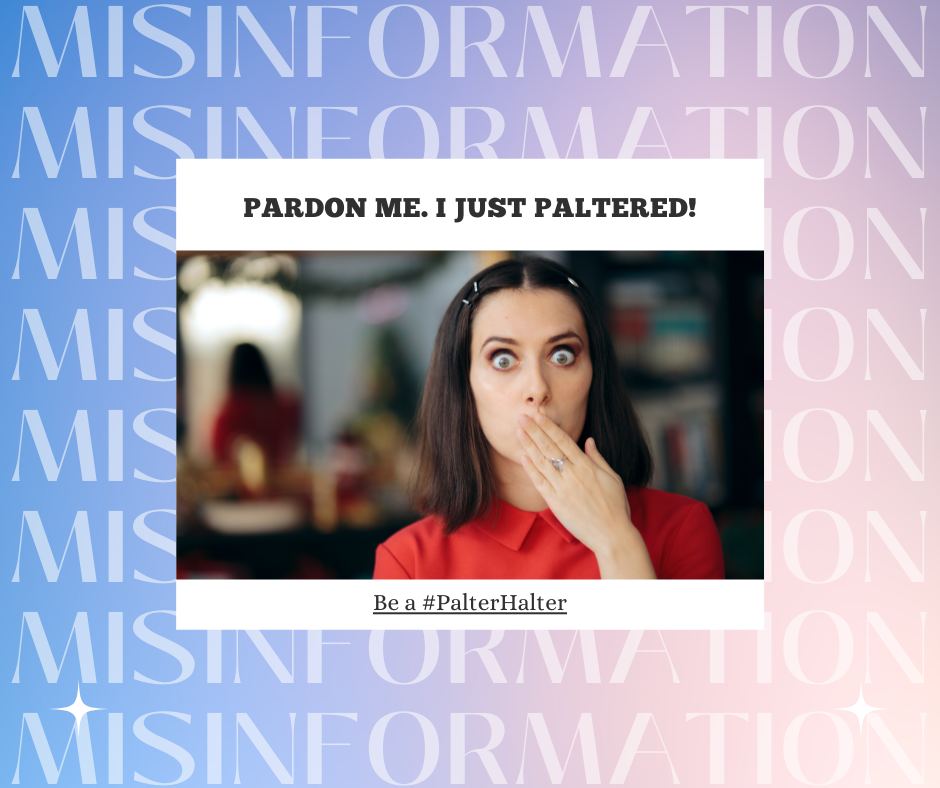
The Texas Standard soon reported on the BBC coverage declaring Lying While Telling The Truth Now Has A Name: Paltering. (I suppose “paltering” seemed like it would have been a British term) Their article on the subject covered new ground and brought Politifact into the discourse. They also recorded a five minute segment on paltering with Jennifer Mercieca, professor of communication at Texas A&M University.
Politics: The Art of the Palter
In their study, Is there an ideological asymmetry in the moral approval of spreading misinformation by politicians? research psychologists Jonas De keersmaecker and Arne Roets found that conservatives are more likely than liberals to tolerate politicians spreading misinformation. Their findings were detailed in the PsyPost article. They looked at:
- Lying by Commission: telling untruths
- Lying by Omission: leaving out vital information
- Paltering: using the truth to create an false conclusion
Now let’s examine the case study in Advanced Paltering with former US Secretary of State Mike Pompeo. A Putin-supporting Russian journalist posted this on Twitter. The translation is below, along with the video he included in his tweet.
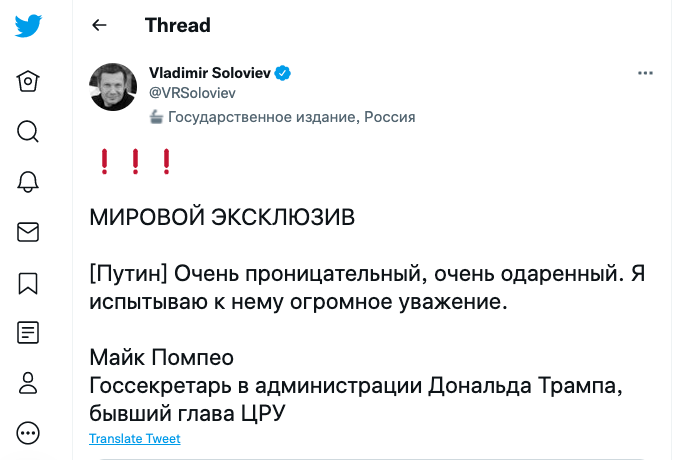
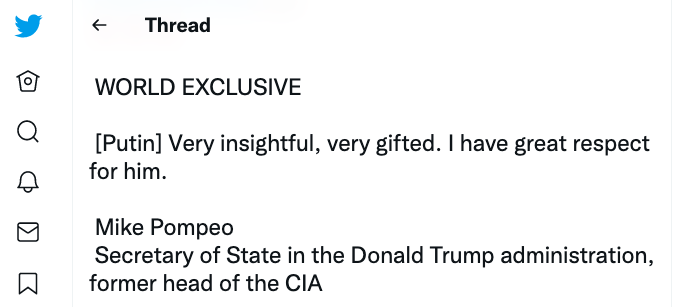
That was unaltered video, selectively edited, that was being utilized as pro-Putin propaganda in Russia and around the world. It wasn’t the only time Pompeo had nice things to say about the Russian leader, like at the 5:35 mark in this January 23, 2022 interview on Fox News Sunday. While attending the recent CPAC conference a reporter attempted to ask Pompeo about his recent comments.
Q: “…. Do you regret your words?”
Pompeo: “Been fighting communism since I was a teenager, I’m gonna keep fightin’ communism.”
Q: “Do you regret your words about Putin this week though?”
Pompeo: “I have worked my entire life to make sure that the United States was free of communist dictatorships. I understand my enemy. I’ll always call my enemy for what he is. We have make sure we cross the Russia…”(indiscernible)
Mike Pompeo is regarded as a pretty sharp guy. He graduated first in his class from West Point and went to Harvard Law. He knew what he was being asked, but instead of saying his remarks had been taken out of context, (which they were) he gave a non-answer answer with a bit of righteous indignation.
He paltered.
Todd Rogers, the lead researcher in the Harvard study that gave us “paltering”, was interviewed by Matthew Hutson for his 2017 Boston Globe article. He had some advice for palterers like Pompeo.
“If you ask a specific question, that specific question should be answered, not a variant of it”
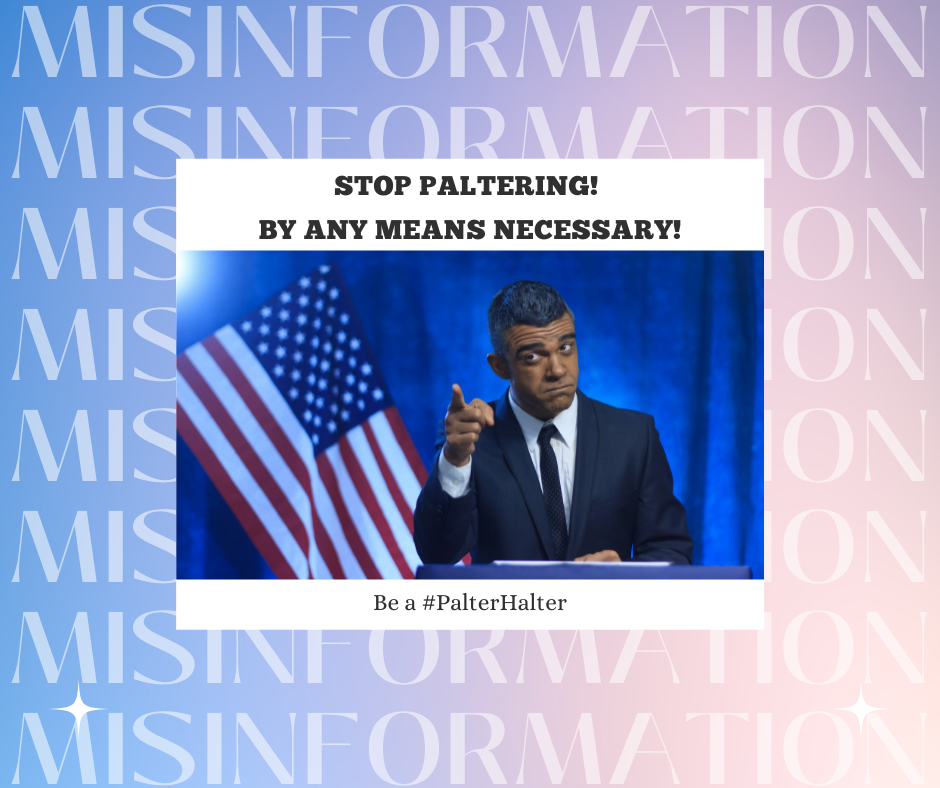
Paltering Away the Planet
Once you learn about paltering, you can’t unlearn it. It starts to pop up everywhere. Sometimes it’s innocent, other times it’s deadly serious.
The new report from the IPCC came out at the end of February 2022 and the news is not good. The AP article quotes UN Secretary-General Antonio Gutterres calling the report “… an atlas of human suffering and a damning indictment of failed climate leadership.” Agreed. but what about the role misinformation has played?
What about paltering?
In his 2019 study, Understanding and countering misinformation about climate change, researcher John Cook contends that misinformation is a major factor in climate change denial and that paltering is a preferred technique for delivering it. He points to an example of “cherry picking” data to arrive at desired conclusion instead of the true conclusion. These false results support denier narratives and can easily spread through communities primed to accept such deception at face value.
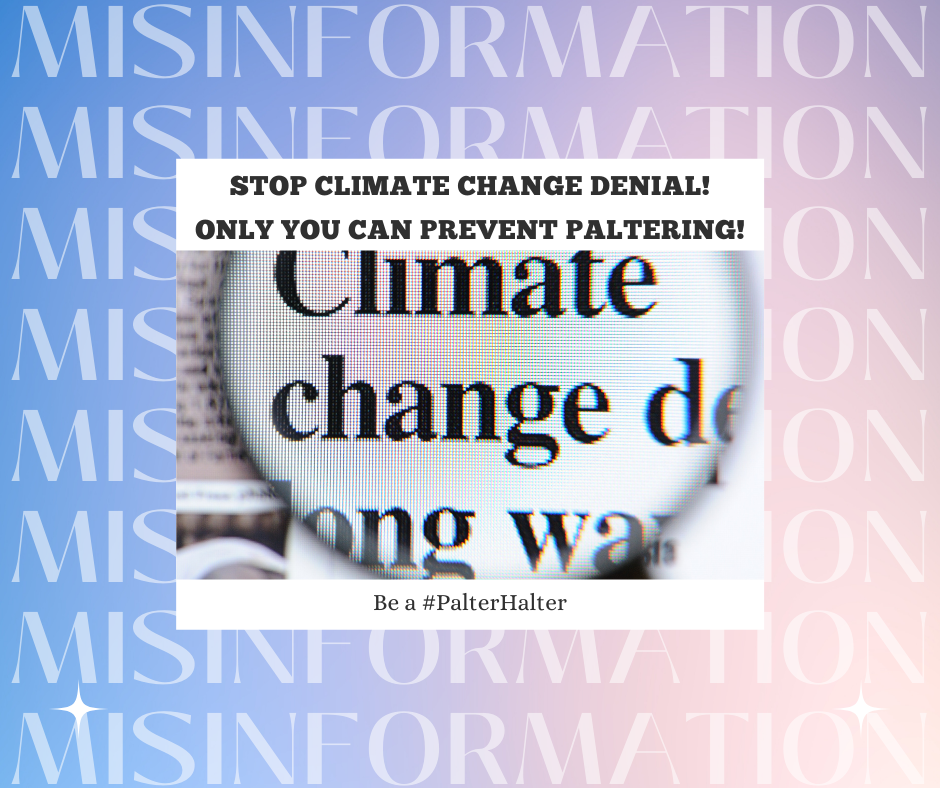
In a recent interview titled Misleading climate ads from Big Oil explode ahead of Big Oil climate hearing John Cook also noted that fossil fuel companies engaging in “greenwashing” are paltering – making true statements that don’t tell the whole story. There are so many ads flooding social media that people may have the impression that oil companies are coming up with solutions, when in actuality they are still a huge part of the problem.

Final thoughts…
The best way to stop the flow of misinformation is at the source. Paltering is something we shouldn’t be doing in our everyday lives, and we shouldn’t tolerate it from anyone, anywhere or anytime. I’ve included 5 memes here that you can copy and send out with a link to this post. Be a #PalterHalter!
